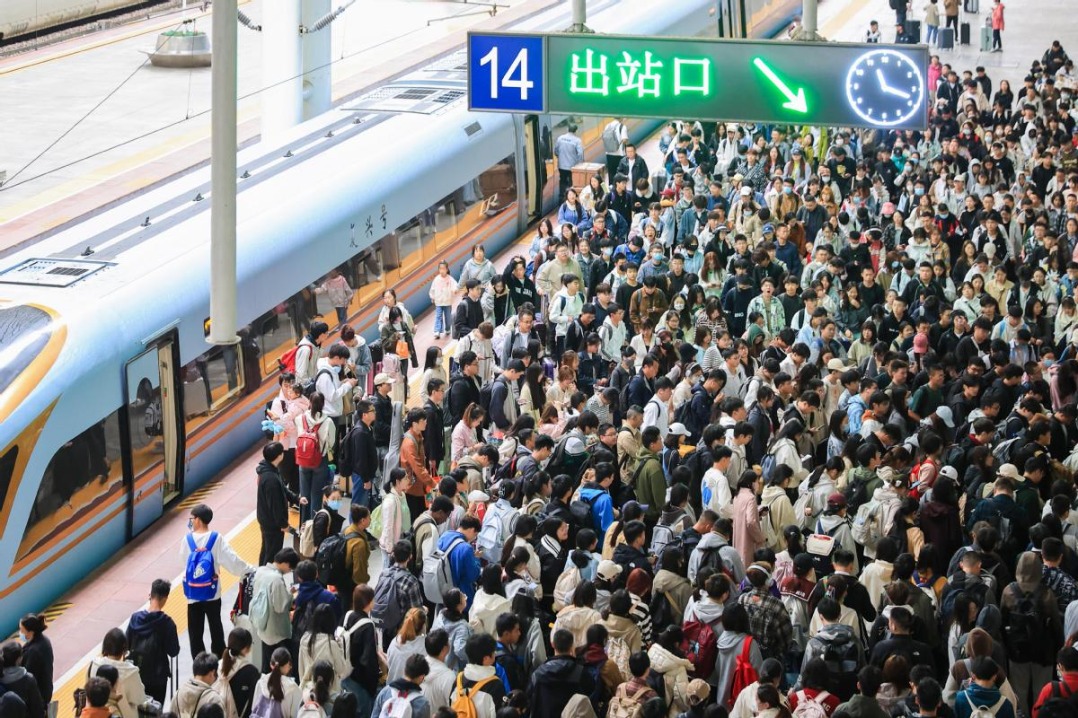Commercial trappings and promotions should not obscure traditional festivals


The traditional Chinese festival of Zhongqiu is known to English speakers as Mid-Autumn Festival, "Moon Festival" or "Mooncake Festival". Although Mid-Autumn Festival best conveys the meaning and spirit of the festival because Zhongqiu means mid-autumn, I personally like the latter two better because they are more testable.
The moon, especially a full moon in the middle of the eighth month of the Chinese lunar calendar, can easily prompt people to dream romantic, fanciful dreams, while the very mention of mooncake can arouse our taste bud. Since childhood, I have insisted on calling the festival Yuebingjie (Mooncake Festival) despite my parents' reproaching me for sounding uncultured. As a young boy, like many other boys at the time, I did not care much about the festival rituals, such as watching the moon or praying to the moon. What we cared for was getting a share of the delicious mooncake on the table.
A special aspect about traditional Chinese festivals is that they all seem connected with a certain type of food. For Lantern Festival in the early part of the year, we have dumplings, for Dragon Boat Festival in the middle of a year, we have zongzi (dumpling made of glutinous rice wrapped in bamboo or reed leaves) and for Spring Festival, a big family feast with a number of special dishes.
Special dishes or types of food have played a big role in the festivals being observed from generation to generation for hundreds of years. While dumplings and zongzi are prepared at home by many families with simple and inexpensive ingredients even today, mooncakes seem to have taken the high-end route. Since the Chinese people have a tradition of gifting each other mooncakes, because they are believed to bring good luck, shrewd businesspeople used it as an opportunity to make and sell expensive mooncakes to earn handsome profits.
New formulas and exotic ingredients for making mooncakes have been introduced accompanied by fancy packaging and promotions. Of course, the prices of such products are very high. Statistics show that last year, more than 19,000 enterprises in China were involved in the mooncake business, producing about 320,000 tons of these delicacies. A total of 22 billion yuan ($3.13 billion) worth of mooncakes were sold last year, and yet the mooncake making enterprises believed their best time was yet to come, perhaps because the mooncake market had been on the rise, growing from 13 billion yuan in 2015 to 22 billion yuan last year.
But mooncake makers apparently met their Waterloo this year. Though mooncake sales differ from region to region, they all point downhill, with some regions reporting a decline of nearly 50 percent compared with last year. There have been reports saying some mooncake makers threw away their products into trash cans, while others tried to recycle them to make other products and yet others donated their unsold products to charities.
Market experts and economists are studying the reasons behind the sharp decline in the sales of mooncakes this year. Some say that facing a slowing economy, people are more cautious about loosening their purses for something that is not a necessity. Others say the ongoing anti-corruption drive might have caused the decline in the sales of mooncakes, because fewer people nowadays dare to use public funds to buy mooncakes as gifts. Yet others say the mooncakes are too sweet to suit the changing tastes of the Chinese people or too expensive for many people to afford. Some even say that since the Chinese people have become more environmentally-friendly, they refuse to buy mooncakes because they come with unnecessarily fanciful and excessive packaging.
To me, all the analyses make sense, but I think the experts are unnecessarily worried about the future of mooncakes. Without the 19,000 professional enterprises, mooncakes have survived hundreds of years, becoming synonymous with Mid-Autumn Festival. In a way, the so-called mooncake market feeds on "Mooncake Festival". The mooncakes sold in the market should not be allowed to become bigger or more important than Mid-Autumn Festival.
I'd rather celebrate the festival the traditional way, without the influence of commercial promotions for highly expensive mooncakes.
The author is former deputy editor-in-chief of China Daily.


































